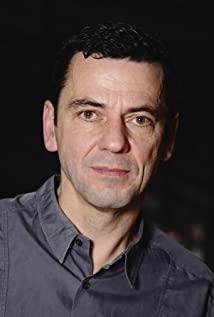This is the most dramatic plot of Christian Petzold's work so far. It is quite different from his early Berlin school style, but the credibility of the plot is on the verge of danger. Even if the wife changed her face and changed another face, how could the husband not recognize the voice and handwriting of the person next to her pillow? In the middle of the plot, I couldn't help but wipe a sweat for the screenwriter. Fortunately, the many details in the play made me relieved: in fact, the husband has recognized his wife, but because of his guilty conscience and guilt, he can't take the initiative to explain and expose the truth. From this point of view, this script is a must. On the surface, it is the subject of post-war traumatic sequelae. It tells the strange story of a wife who survived the Nazi slaughter and finds her husband. From another perspective, this seems to be about the process of identity reconstruction. The story uses the heroine's eyes to examine the identity and status of the surviving Jews in German society. The combination of a German husband and a Jewish wife seems to be flawless, but there are horrible rifts in the dark of human nature. The husband’s behavior of betraying and reporting his wife in order to survive is unbelievable, and the behavior and attitude of the wife's friends who witnessed her return is also intriguing. No one mentions her tragic experience in the Nazi concentration camps. It does not completely mean that they are polite and sympathetic to the Jews. It is also partly a selective forgetting due to pressure. From this reborn Jewish survivor, it is enough to see that the Jews did not receive true sympathy and respect in German society after World War II, and in more cases became the object of being used and forgotten. When portraying the heroine, the script did not use the usual methods, such as complaining with resentment, or accumulating to get revenge. Unexpectedly, she was still immersed in the fantasy world of love, and she wanted to reunite with her husband, and even played a role-playing game with her husband. Unfortunately, in the process of self-deception, he gradually became sober, and finally saw the true face of her husband, and chose to end the relationship in the most euphemistic and indifferent way. The processing of the end of the film is a must. A thrilling emotional storm is set off in the calm scene: an intoxicating jazz masterpiece Speak Low, the number mark on the wife's arm, and the hazy picture of silent departure, undoubtedly for the movie audience It leaves a broad space for thinking and a long time for aftertaste. This ending inherits the author's label that the director has always liked. Although it does not have the scary car accident scenes in the early works, it still exudes an unexpected sense of horror. The abruptly stopped painting area gathers powerful emotional expressions. The ending of "Barbara" is exactly the same.
View more about Phoenix reviews











